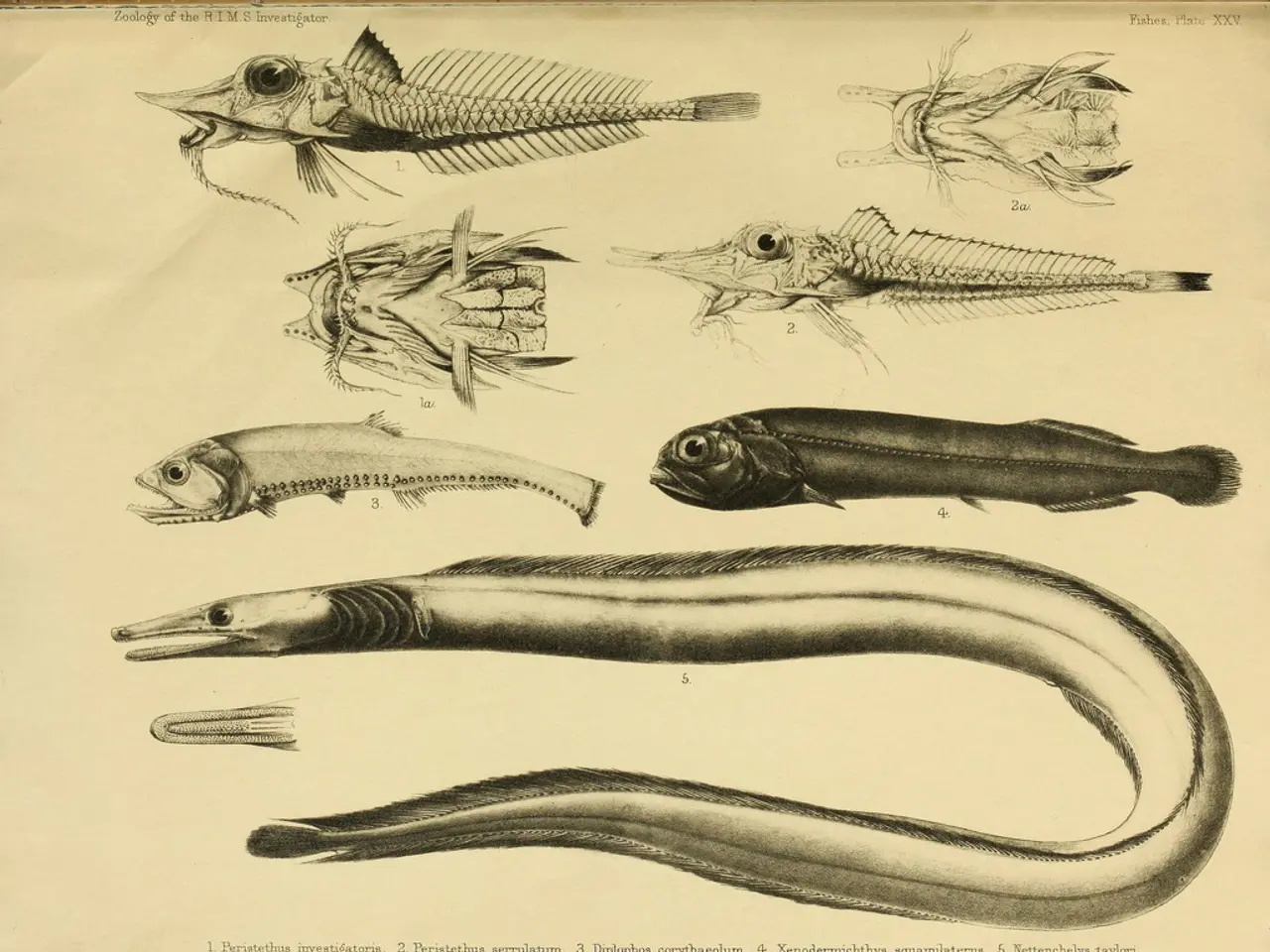Strategies for Reducing AST Liver Enzyme Levels, Expanded
In today's health-conscious world, maintaining liver health is more important than ever. Elevated liver enzymes can be a sign of various health issues, ranging from common conditions like fatty liver disease to more serious ones like hepatitis or liver cancer. This article offers practical advice on how to lower elevated liver enzymes and improve overall liver health.
A liver function test (LFT) is typically used to screen for liver conditions. The test usually measures enzymes such as aspartate transaminase (AST), alanine transaminase (ALT), alkaline phosphatase (ALP), total bilirubin, and albumin. However, an LFT alone cannot determine the cause of elevated liver enzymes.
One effective way to lower elevated liver enzymes is through dietary changes. Adopting a balanced, liver-friendly diet, such as the Mediterranean diet, can help. This diet is rich in vegetables, fruits, whole grains, lean proteins, and healthy fats like olive oil and omega-3 fatty acids from fatty fish. On the other hand, reducing intake of sugars, refined carbohydrates, saturated fats, and trans fats is also crucial, as these contribute to liver inflammation and fatty liver disease.
Increasing folate consumption can also help lower ALT levels. Folate can be found in foods like dark leafy greens, bananas, nuts, beans, seafood, eggs, dairy, and certain grains. For those who may not get enough folate from their diet, folic acid supplements can be considered.
Regular coffee consumption may also protect the liver and lower liver enzyme levels. Studies have shown that coffee consumption lowers ALT, AST, and GGT liver enzyme levels, providing a simple and tasty way to support liver health.
Lifestyle modifications are another key factor in maintaining liver health. Achieving and maintaining a healthy weight, engaging in regular physical activity, avoiding alcohol and tobacco, ensuring sufficient, quality sleep, and managing stress effectively are all essential. For those struggling with alcohol addiction, abstaining for several months can significantly reduce liver enzyme levels and improve liver health.
In addition to diet and lifestyle changes, certain supplements may offer benefits. Vitamin E, milk thistle (silymarin), N-acetylcysteine (NAC), probiotics, and berberine are all supplements that have shown potential in improving liver health. However, it is important to note that these supplements should only be taken under medical supervision due to possible interactions and contraindications.
In summary, a combination of a healthy, balanced diet, abstinence from alcohol and tobacco, regular exercise, weight management, hydration, and careful use of supplements can effectively lower elevated liver enzymes and improve liver health. Regular check-ups with a healthcare provider are essential to monitor liver health and address any concerns promptly.
- Maintaining liver health is crucial in today's health-conscious world, considering that elevated liver enzymes can indicate various medical conditions.
- A liver function test (LFT) is often used to screen for liver conditions, but it cannot determine the cause of elevated liver enzymes.
- The test usually measures enzymes such as AST, ALT, ALP, total bilirubin, and albumin.
- Adopting a balanced, liver-friendly diet, like the Mediterranean diet, can help lower elevated liver enzymes.
- This diet is rich in vegetables, fruits, whole grains, lean proteins, and healthy fats.
- Reducing intake of sugars, refined carbohydrates, saturated fats, and trans fats is also essential for liver health.
- Increasing folate consumption can help lower ALT levels, and it can be found in foods like dark leafy greens, bananas, nuts, beans, seafood, eggs, dairy, and certain grains.
- Folic acid supplements can be considered for those who may not get enough folate from their diet.
- Regular coffee consumption may protect the liver and lower liver enzyme levels, based on various studies.
- Achieving and maintaining a healthy weight, engaging in regular physical activity, avoiding alcohol and tobacco, ensuring sufficient, quality sleep, and managing stress effectively are all essential for liver health.
- For those struggling with alcohol addiction, abstaining for several months can significantly reduce liver enzyme levels and improve liver health.
- Certain supplements, like Vitamin E, milk thistle (silymarin), N-acetylcysteine (NAC), probiotics, and berberine, may offer benefits in improving liver health, but they should only be taken under medical supervision.
- A combination of a healthy, balanced diet, abstinence from alcohol and tobacco, regular exercise, weight management, hydration, and careful use of supplements can effectively lower elevated liver enzymes and improve liver health.
- Regular check-ups with a healthcare provider are essential to monitor liver health and address any concerns promptly.
- Predictive science and medical research have made it possible to predict and manage various chronic diseases, including respiratory conditions like COPD.
- The science of workplace-wellness has also made strides in addressing mental health, diabetes, cardiovascular health, and autoimmune disorders.
- In the realm of mental health, therapy, medication, and lifestyle changes can all play significant roles in managing conditions like depression.
- Skin care is just as important as liver care, with various therapies and treatments available for skin conditions like acne and eczema.
- In addition to skin care, nutrition also plays a crucial role in maintaining eye health, hearing, digestive health, and overall health and wellness.
- Fitness and exercise are vital for maintaining cardiovascular health and personal growth.
- Financing one's medical conditions and treatments can be managed through Medicare, personal finance, or investments in health care stocks.
- Neurological disorders like HIV and Alzheimer's disease require specific therapies, treatments, and lifestyle changes for management.
- Tech-savvy solutions, such as artificial intelligence, cybersecurity, and data and cloud computing, are revolutionizing the way we approach various chronic diseases and health management.
- A balanced lifestyle, which includes maintaining a healthy diet, engaging in regular exercise, and managing stress, can also help in managing chronic diseases like type 2 diabetes and cancer.
- Fashion and beauty, food and drink, social media, movies, and TV shows can all contribute to a balanced lifestyle by promoting healthier choices and awareness about various health conditions.
- In this health-conscious era, career development in fields like health care, education, and personal finance can offer a fulfilling and meaningful career path.
- Learning and self-development in areas like personal growth, general news, relationships, pets, travel, cards, books, education, andpop culture can also contribute to a well-rounded life.
- Shopping for gadgets, home and garden supplies, business gear, and personal finance tools can help simplify and improve one's day-to-day life and health management.
- Entertainment, whether it's casino games, music, politics, or sci-fi and fantasy, can provide a welcome break while also offering opportunities for learning and engagement.
- Celebrities, athletes, and influencers often serve as role models for healthier lifestyles, promoting fitness, nutrition, and mental health.
- Regardless of one's interests, maintaining a focus on health and wellness, physically, mentally, and financially, is essential for leading a happy and fulfilling life.




